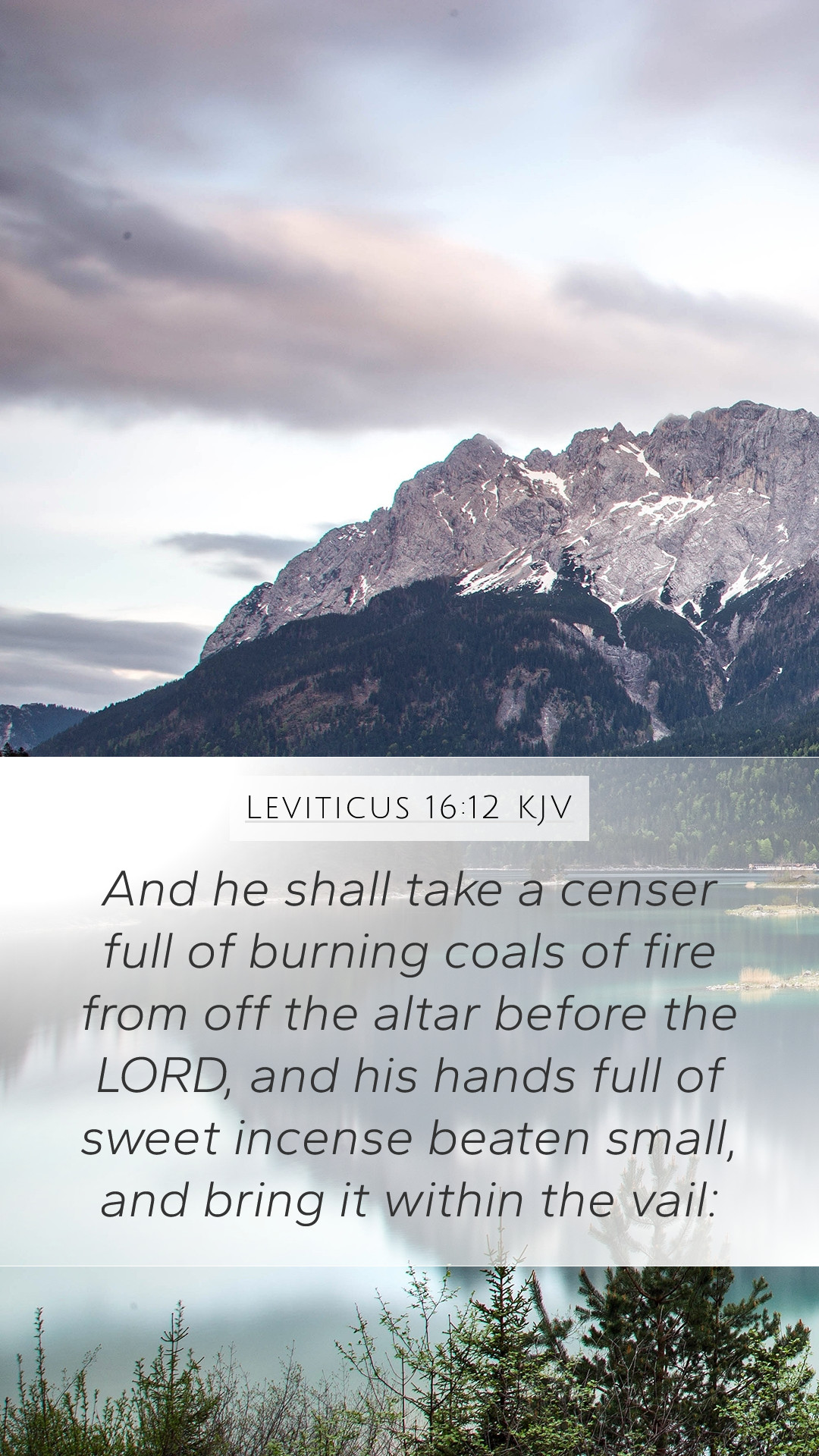Understanding Leviticus 16:12
Bible Verse: Leviticus 16:12
This verse discusses a significant aspect of the Day of Atonement, where the high priest plays a crucial role in the atonement process for the people of Israel.
Summary of Leviticus 16:12
In Leviticus 16:12, we see the instructions given to the high priest regarding the sacred practice associated with Yom Kippur, or the Day of Atonement. The high priest is to take a censer full of burning coals from the altar and put sweet incense on it before the Lord, creating a cloud of incense in the Most Holy Place.
Insights from Public Domain Commentaries
-
Matthew Henry:
Henry notes that the censer represents the prayers of the people ascending to God. The sweet incense symbolizes the pleasing nature of these prayers, created through the mediation of the high priest as he approaches God on behalf of the people.
-
Albert Barnes:
Barnes emphasizes the importance of the high priest's role, highlighting that the incense had to be placed in such a way that it formed a cloud, shielding the priest from the direct presence of God. This reflects the holiness of God and serves as a reminder of the need for a mediator between the holy God and sinful humanity.
-
Adam Clarke:
Clarke provides an interpretive insight into the symbolism behind the incense. He suggests that the act of putting burning coals and incense into the censer represents the believer’s actions needing divine validation and acceptance. The cloud is a metaphor for God’s mercy being present during the atonement rituals.
Thematic Significance
The verse forms part of a broader narrative about atonement, sin, and reconciliation between God and Israel. It reflects the theme of mediation, illustrating the requirement of a mediator (the high priest) to offer sacrifices and prayers on behalf of the people.
Reflection and Application
The application of Leviticus 16:12 in contemporary life invites believers to consider the significance of prayer and mediation in their relationship with God. It also highlights the need for a Holy intermediary, which Christians find fulfilled in Jesus Christ.
Cross References
- Exodus 30:7-8 - Instructions regarding incense and the altar.
- Hebrews 9:7 - The role of the high priest in the earthly sanctuary.
- Romans 8:34 - Christ's intercession for believers.
Conclusion
In summary, Leviticus 16:12 serves as an important scripture for understanding the atonement rituals in the Old Testament. It provides deep insights into biblical exegesis and shows the relevance of these practices in aiding our understanding of New Testament teachings on mediation and prayer.
For further study, believers are encouraged to explore:
- Bible study guides
- Online Bible study resources
- Bible study lessons on the significance of atonement


